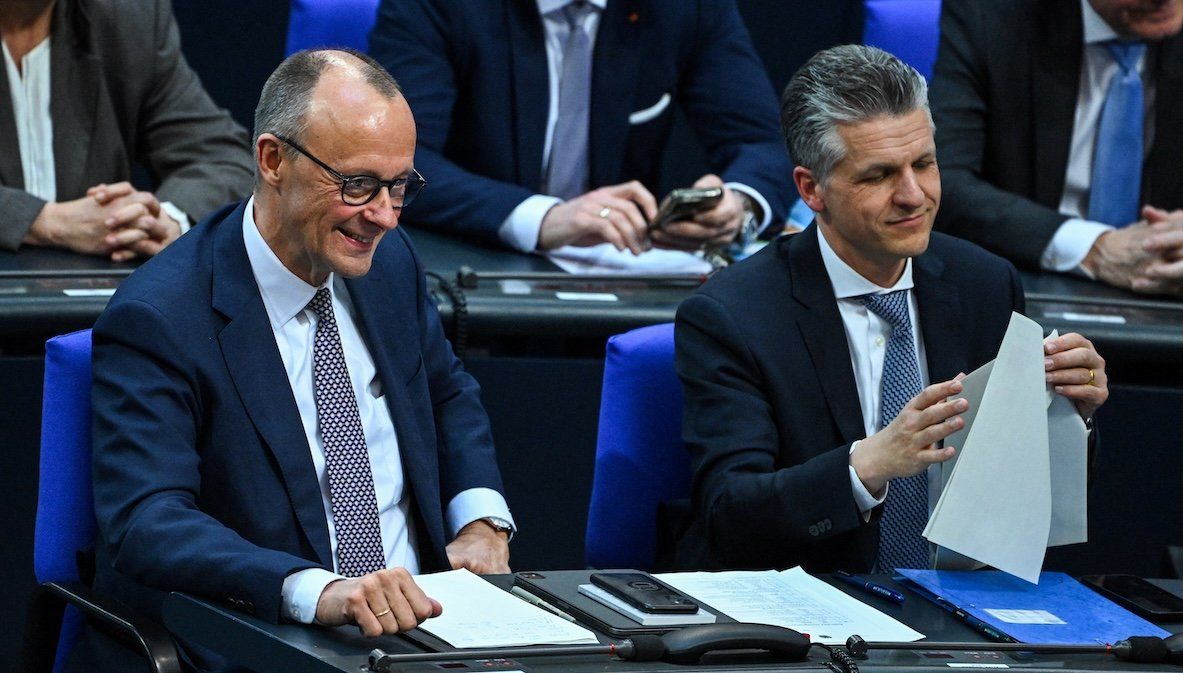Germany's chancellor-in-waiting and leader of the Christian Democratic Union party Friedrich Merz reacts as he attends an extraordinary session of the outgoing lower house of parliament, the Bundestag, on March 18, 2025.
Since the end of World War II, the subject of military buildout has been politically taboo – first in West Germany and then in reunified Germany. But Russia’s invasion of Ukraine and hints that US President Donald Trump might pull support for Kyiv and take a reduced role in NATO have changed German minds.
On Tuesday, a two-thirds majority in the Bundestag, Germany’s parliament,made history by voting to sharply increase defense spending – by exempting it from limits on the country’s assumption of debt. Germany’s upper house, the Bundesrat, is widely expected to approve this change with a vote scheduled for Friday.
This vote would have failed a week from now when the new Bundestag, with members chosen at the February national elections, is seated, because the country’s far right and far left each oppose the move and would have had the one-third of votes needed to block it. Instead, incoming Chancellor Friedrich Merz has scored a resounding political victory.
It’s also big news for Europe and for Ukraine. A decision on Tuesday by NATO members Poland, Lithuania, Latvia, and Estonia towithdraw from the Ottawa Convention that bans anti-personnel landmines and to begin stockpiling them underlines the current sense of alarm in Eastern Europe over Russia’s future military plans. A surge in German military spending can persuade other NATO members that the money they spend on European security and the defense of Ukraine is less likely to be wasted.